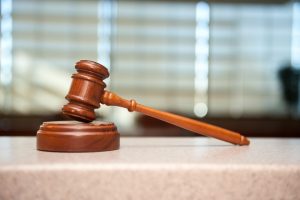Charlotte Criminal Lawyer Brad Smith answers the question: “Can I be arrested without evidence against me?”
Lots of juicy television police procedurals spend time showing what goes on during jury deliberations. The deliberations often make for good television because of the interest people have in what goes on behind the scenes, a space usually out of view to most people. It’s fun to imagine what real jurors have to say to one another, something that in the real world, criminal defendants don’t have the luxury of knowing. The reason for the interest is that in almost all cases, a jury’s deliberations are meant to be secret.
 Though most people instinctively believe that jury deliberations are kept secret, a way of ensuring that outsiders are unable to influence a verdict, the reality is that this rule isn’t quite so absolute. The U.S. Supreme Court recently weighed in on the issue and ruled that in some cases other interests might trump the interest in maintaining secret deliberations.
Though most people instinctively believe that jury deliberations are kept secret, a way of ensuring that outsiders are unable to influence a verdict, the reality is that this rule isn’t quite so absolute. The U.S. Supreme Court recently weighed in on the issue and ruled that in some cases other interests might trump the interest in maintaining secret deliberations.
The case that the Supreme Court tackled concerned a criminal defendant in Colorado named Miguel Angle Pena Rodriguez. After Rodriguez was convicted, it was revealed that a juror made statements concerning the defendant’s Hispanic heritage. Two jurors came forward to accuse a fellow juror of saying that Rodriguez was guilty because he is, “Mexican, and Mexican men take whatever they want.” Once this information was revealed, Rodriguez and his team of attorneys challenged the conviction, saying that the racist views expressed by the one juror tainted the verdict and deprived their client of a fair trial.
The case eventually made its way to the Supreme Court and the majority, in a 5-3 decision, decided that in certain cases trial courts could consider evidence of a juror’s statements during deliberations. The majority said that the case presented a blatant example of racial prejudice which is “antithetical to the function of the jury system”. Given how toxic the Court considered such statements, it felt that it must allow them to be confronted, despite the rule that jury deliberations remain secret.
Three of the most conservative justices dissented, saying that though the decision of the majority was admirable in its intention, the rule respecting privacy in the jury room is too important to be ignored. The dissenters said opening the door to allow deliberations to be made public, even only a little, violates the constitution. The dissenters agreed that the remarks by the juror were indefensible, but thought that there were other ways to address racial bias on juries, such as more closely screening potential jurors.
Though the Supreme Court agreed that secrecy may not always prevail, the Court stopped short of giving Rodriguez everything that he wanted. The majority did not order a new trial and did not lay out clear steps that lower courts should take in future cases. In weighing the value of keeping deliberations secret versus the Sixth Amendment’s guarantee that defendants are entitled to receive an impartial jury, the Court decided that, at least in this especially egregious case, they would side in favor of the Sixth Amendment.
If you or someone you know has been charged with a crime, please contact the experienced criminal defense attorneys at Arnold & Smith, PLLC. Our attorneys stand at the ready to defend you against state or federal charges. Please contact Arnold & Smith, PLLC today at (704) 370-2828 or find additional resources here.
About the Author
 Brad Smith is a Managing Member of Arnold & Smith, PLLC, where he focuses on the areas of criminal defense, DUI / DWI defense and traffic defense.
Brad Smith is a Managing Member of Arnold & Smith, PLLC, where he focuses on the areas of criminal defense, DUI / DWI defense and traffic defense.
Mr. Smith was born and raised in Charlotte. He began his legal career as an Assistant District Attorney before entering private practice in 2006.
In his free time, Mr. Smith enjoys traveling, boating, golf, hiking and spending time with his wife and three children.
Sources:
https://www.nytimes.com/2017/03/06/us/politics/supreme-court-jury-bias-secrecy.html
Image Credit:
http://www.freeimages.com/photo/gavel-3-1236445
See Our Related Video from our YouTube channel:
https://www.youtube.com/user/ArnoldSmithPLLC?feature=watch
See Our Related Blog Posts:
 Charlotte Criminal Lawyer Blog
Charlotte Criminal Lawyer Blog

